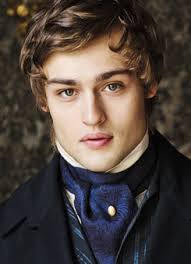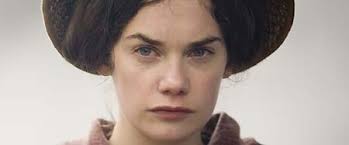Heroes and heroines in historical fiction
- Nov 4, 2015
- 4 min read
As the writer of one - soon to be two - historical novels, I started to wonder what made a great hero or heroine in this genre. My own two novels feature strong characters, most especially strong women. I am interested in what makes a woman do something remarkable or brave; in their ability to survive whatever life throws at them. But is that enough? Does that actually make them heroic?
The dictionary definition of heroism is this: ‘a person who is admired for their courage, outstanding achievements, or noble qualities.’
I asked around amongst my friends, fellow writers and bloggers for their views on the ideal hero or heroine in a historical novel. Their answers were illuminating.
Popular was Elizabeth Bennet, from Jane Austin’s Pride and Prejudice. What is it about ‘Lizzy’ that resonates with so many of us? She is intelligent and quick-witted, of course, as is demonstrated in the playfulness of her conversation, but also supremely observant of all that is going on around her. Nowadays we would say that she has enormous social intelligence. She has a restless energy, and independence of thought, at odds with the constraints of the society within which she lives. Her only flaw – to quote the lady herself – is a certain ‘impertinence’, her refusal to submit to the will of those in authority. It is this, I think, which makes us love her. It was certainly the trait that attracted Darcy.
Jane Eyre got several votes. She demonstrated true nobility - leaving the man she loved when she discovered he was married, but returning when she heard that he had been blinded and needed her. Noble, selfless, capable of great courage; a true heroine. Or as one of my friends put it ‘she overcame naivety and prejudice to repair a broken soul’.
Jo March is a perennial favourite - headstrong, rebellious, independent. She is a flawed heroine in many ways and yet proved an admirable role model for generations of young women.
Our final ‘favourite’ was Scarlett O’Hara. Larger than life, brave, heartless, complex, conceited, avaricious, flirtatious. She also demonstrates enormous strength of character and courage when she returns to Tara and has to survive in the aftermath of the civil war. Margaret Mitchell puts her lead character through the ringer emotionally – the book takes her on a roller coaster from wealth to poverty and back again; through heartache, a marriage of convenience, the loss of her daughter, before finally, and perhaps most cruelly, allowing her to discover what the reader has known all along - that Rhett Butler is the true love of her life, on the day that he leaves her. Luckily for her, and perhaps most encouragingly for her readers, she is also the ultimate optimist: ‘Tomorrow is another day’….
Pip from Great Expectations was the top choice of hero with men. Pip was a man who has to learn the hard way that the love of money and position does not lead to happiness; that we are all responsible for our own actions, and that our choices have consequences. Not a classic hero, but a role model certainly.
Atticus Finch was an understandable and popular choice, with both men and women. A man who stands up for what is right in the face of racism and inequality is clearly heroic.
Mr Rochester got lots of votes. A dark, brooding romantic hero, certainly; capable of cruelty, but also wounded and damaged beneath. Heathcliff was a more surprising, but popular choice. Was he really a hero or the villain of the piece? Robin Hood proved popular; those who chose him described him as ‘a loveable rogue’. But is that the definition of a hero? I’m not sure. He certainly demonstrated bravery, nobility and had an ability to cock a snook at authority that makes him attractive – much like Elizabeth Bennet.
Finally, Sherlock Holmes got a lot of votes. How interesting, that one of the most heroic men we can think of was quirky, possibly on the autistic spectrum and a drug addict. Clearly it demonstrates that his noble and heroic qualities – voracious intelligence, bravery and determination to right wrongs - more than made up for his personality disorders.
Perhaps what we learn from fiction is to see beyond an individual’s personality flaws to the true character within. Not for us the tall handsome man who is clearly leading from the front and performing acts of courage, Bond-like (no votes for him, I notice). We appear to prefer darker, more complicated and flawed individuals who are nevertheless able to overcome their inner demons to save and protect those they love.
The ‘heroine’ of my first novel Secrets of The Tower was a real woman, of whom very little is known. Berta di Bernardo donated the money to build the Leaning Tower of Pisa back in 1153, and the only records we have is a copy of her will. Consequently I had to develop her back-story and her personality – both a responsibility and a challenge. She was clearly capable of ‘outstanding achievements’, in enabling the creation of this remarkable tower. I depicted her as a flawed heroine – selfish, lustful and capable of deception and manipulation. And yet also loyal, fiercely protective of those she loves, and ultimately capable of an act of true nobility and self-sacrifice. These for me are the true heroic qualities. When a person has to fight against their own self-interest, to do battle with their inherently selfish nature and ultimately perform a perfectly selfless act.
So here’s to the heroes –the fictional creations who have the power to inspire and who give us all so much to admire and live up to.











Comments